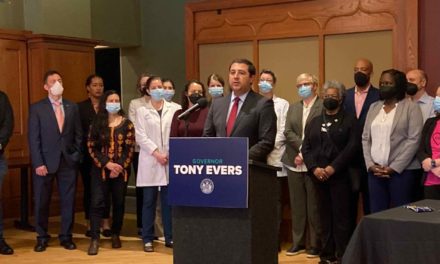
UW School of Medicine and Public Health: Neurological surgery patients help show how brain reacts to stress
Madison, Wis. — Brain scans of patients with injuries in an important regulatory region in the brain are helping neuroscientists understand how the brain reacts to stress and deals with uncertainty.
Dr. Michael Koenigs, associate professor of psychiatry at UW School of Medicine and Public Health, said all four patients had shown personality changes before neurosurgery to remove brain tumors in the region of the brain known as the ventromedial prefrontal cortex (vmPFC). This part of the brain is considered crucial to regulating mood and social functions, and theories based on rodent studies suggest that people with vmPFC damage should be more anxious and fearful.
However, functional magnetic resonance scans of the patients after their tumors were removed suggest that the top-down model of vmPFC control of emotional response may be incorrect.
“It seems to be more complicated than what researchers have generally thought,” Koenigs says. “We’re concluding that the interaction among brain regions is more complex and that the prefrontal cortex plays a more multifaceted role in regulating emotion.”
In the first study, published in the Journal of Biological Psychiatry, researchers looked at what effect a damaged vmPFC would have on the amygdala, the brain’s fear center. While their brains were being scanned, the patients looked at photos that were either neutral (a landscape, for example) or aversive (a picture of an injured person). Nineteen healthy people served as controls.
As predicted by the theory, patients with damage to the vmPFC had much stronger amygdala response to the negative images than the control subjects. However, this did not result in them feeling more fearful, nor did the aversive pictures elicit the normal change in their heart rates.
“This is the first time anyone has been able to look at causal interactions in this circuit in a human study,” Koenigs said. “It shows that the basic top-down model of emotion regulation is too simple.”
The second study, published last week in the Journal of Neuroscience, looked at how the damaged brains coped with uncertainty by tracking the activity of the insula, which plays a role in anticipation. Studies by the UW’s Dr. Jack Nitschke and others have shown that uncertainty and excessive worry about potential future events is a hallmark of anxiety disorders.
During this study, both patients and controls had their brains scanned while they reacted to certain cues and ambiguous ones that preceded either aversive or neutral photos. The study found that uncertainty triggered a greater insula response in the brain surgery patients, but that it did not increase their heart rate. Control patients did have a heart rate increase, and such heart-rate variability is considered a healthy response to stress; lower variability is associated with delayed recovery from stress.
Together, the results of these two studies will likely trigger a reconsideration and revision of the predominant theory regarding the brain mechanisms underlying emotion regulation. The findings indicate that the prefrontal cortex—the putative “control center” of the brain—does more than just clamp down on amygdala activity to regulate the expression of emotion.
“A better understanding of the brain circuitry involved in regulating emotion will hopefully lead to more effective, biologically-based strategies for the diagnosis and treatment of mental illnesses like anxiety and depression,” Koenigs said.
The lead author on the two studies was Julian Motzkin, a student in the Medical Scientist Training Program. Motzkin recently won the Jerzy Rose prize for the research, given annually to the student in UW’s Neuroscientist Training Program with the best doctoral thesis. He is currently a medical student at UW School of Medicine and Public Health. Other authors are Dr. Carissa Philippi, graduate student Richard Wolf, and UW neurosurgeon Dr. Mustafa Baskaya, associate professor of neurosurgery.
#





